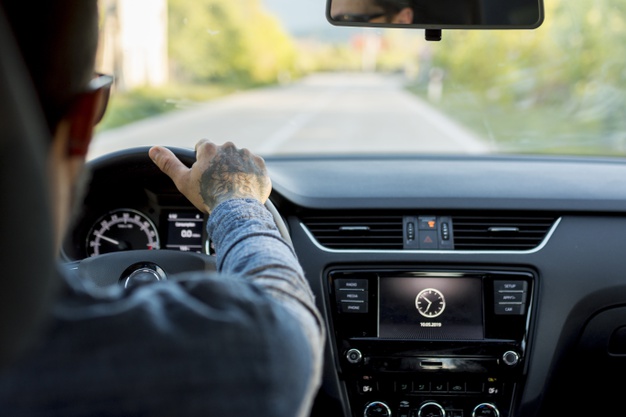If you are planning on moving to Dubai to seek greener pastures, one of the major life decisions you will have to make is whether to buy a car or not.
Although Dubai offers different modes of transportation for visitors and residents, a substantial chunk of locals and expats still prefer to go around the emirate (and beyond) driving their own cars.
For some, it’s a matter of convenience – going to your destination at your own pace. For others, it’s the practical choice: cars and fuel prices are comparatively low.
Should you decide to invest in a car, here are a few essential things to remember.
Securing a driver’s license
The United Arab Emirates allows citizens of some countries to transfer their licenses directly. Take note that for citizens of some countries, you may need to have your license translated or secure a document from your consulate.
To make the transfer, you will need to submit to the Traffic Department Driving License Section a license transfer form along with original and copies of your passport, resident permit, driver’s license, passport-sized photos, the result of your health and eye exams, and a no-objection letter from either your employer or sponsor.
If your country is not included in the Roads and Transport Authority’s (RTA) list of countries that are allowed to transfer their drivers’ licenses, you will need to enroll in a specific number of driving lessons and take a test afterward.
To apply for a license, you will need to show or submit your passport, visa, Emirates ID, resident permit, passport-sized pictures, eye exam results, and an NOC.
Black Points system
Apart from levying fines (and in some cases, jail time), the Dubai police implements a black points system. The goal of this system is to curb bad driving practices and encourage defensive driving and safety for all road users.
Every time a driver incurs a traffic violation, a corresponding amount of black points is issued to his license. Once the number of black points exceeds 24 points, you can be banned from driving up to a year. The accumulation of black points is valid for a year.
Important rules to remember
Dubai has a zero-tolerance policy for driving while under the influence of alcohol. Violate this rule, and you will face a hefty fine, accumulate 23 black points, and your vehicle can be confiscated for 60 days. Worse, you may even serve jail time.
Make it a habit to strap on your seat belt before you even start your car’s engine. If you have passengers, including those in the backseats, remind them to put on their seat belts as well. Failure to do so can result in fines and four black points on your license.
Drive within the speed limit. Most Dubai speed limits rank among the highest in the world, and there is no reason to exceed these. Speeding can result in fines as well as black points.
Don’t use your phone while driving. Violating this rule can lead to a hefty fine plus four black points.
Overtake from the left side. Be sure to use your vehicle’s indicator and that the lane you are moving to is clear.
The Salik Toll Gate
The Salik Toll Gate is Dubai’s automated toll system. Unlike toll systems in other countries, the Salik does not use barriers or physical booths. Instead, cars are required to secure a radio frequency tag to pass through.
As your car passes through the system, the corresponding amount will be deducted from your account. You can get your tag from fuel stations.
Remember to top up your account. If you pass through the system with no remaining credit, you will need to recharge within two days. Otherwise, you will be fined, with the amount depending on the number of tolls that you passed through. You will receive a text message if your account balance is running low.
Car insurance
Whether you are buying a new or secondhand car, you should get car insurance because it is mandatory.
Although there are several variants of car insurance plans to choose from, this type of insurance can be broadly classified into two types: comprehensive and third-party liability.
As its name implies, comprehensive insurance offers superior coverage. This insurance covers your car, the other vehicle involved in the accident, as well as personal accidents, theft, fire, and more.
Third-party liability insurance, on the other hand, only covers the other vehicle and its passengers. Although it is priced lower, you can end up paying more out of your own pocket. Also, take note that some financial institutions do not approve car loans if you only have third-party insurance.
If you are unsure which type of insurance best fits your needs, do not hesitate to ask an insurance expert for guidance.
Exploring Dubai with ease
If you intend to stay in Dubai for a long time, you should strongly consider getting your own car. This opens up new opportunities and locations that would otherwise be difficult to access if you use public transportation.
However, before even thinking of driving, make sure you cover all the bases and adhere to local rules and regulations.
AUTHOR BIO
Erin Daniyel is the VP for Revenue Operations at Rubicon Project and spokesperson for CompareDubai, an online comparison portal which provides customers with a one-stop platform to compare insurance quotes offered within the UAE. CompareDubai delivers quotations from a number of insurance providers covering a range of products, from Car Insurance to Motorbike, Yacht and Boat, Medical, Life, Business and Home Insurance.
